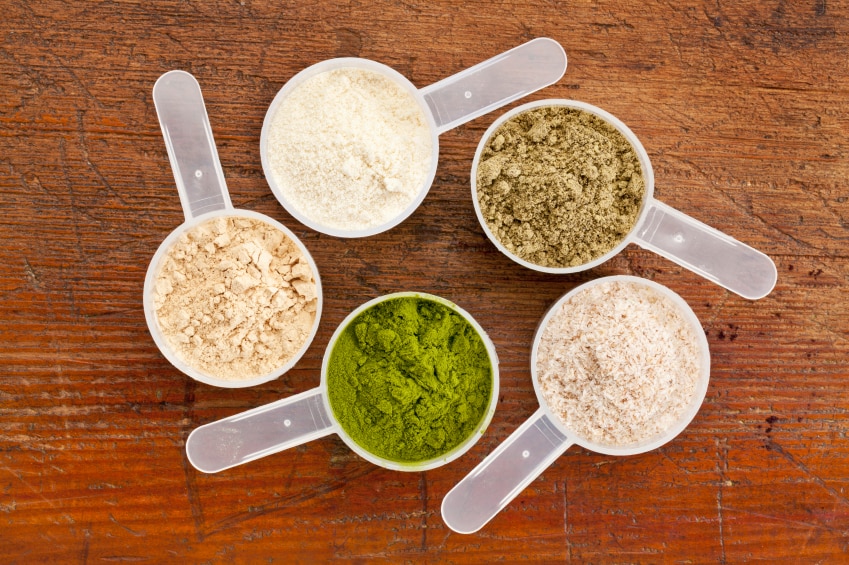Whether you’re simply tired of whey protein, you’re a vegan or you’re looking for an allergen-free alternative, plant-based protein products may be the answer. But which one is right for you? Read on to find out more.
- Pea: Pea protein may not sound enticing, but it can be an excellent and delicious option for vegetarians, vegans or those with food allergies or sensitivities. Pea protein is free of gluten, soy and animal products (including dairy). Pea protein products are typically made from yellow split peas, which are naturally rich in easily digestible and highly absorbable protein and amino acids. As an added plus, pea protein contains no cholesterol and is low in calories. For example, a typical pea protein powder can provide as much as 25 grams of protein, while containing less than 150 calories.
- Hemp: Another popular protein among vegans and vegetarians, hemp is a great source of protein, amino acids and omega 3-6-9 essential fatty acids. Made from hemp seeds, these protein products also offer a large amount of dietary fiber to help keep you feeling full and satisfied. Hemp protein powders mix easily and usually add an earthy, nutty taste and a pleasant green color to your shake or smoothie.
- Brown rice: Brown rice is also another excellent, easily digestible protein option for those who cannot tolerate or do not wish to consume soy or dairy. Brown rice products provide a simple, natural and very low-calorie source of protein that’s free of gluten, wheat, dairy, egg, corn and soy. Look for a product made from non-GMO brown rice.
- Soy: A common alternative to whey protein, soy is a good source of protein, amino acids, fiber, calcium, phytosterols and isoflavones. Soy protein powder is easy to digest and is low in calories, fat and cholesterol. In addition to powdered shakes, soy protein is also commonly found in protein-rich snack products such as food bars and chips. When you’re looking for soy protein, make sure to choose a product that’s made from non-GMO (genetically modified) soybeans.
- Mix: In addition to single-source protein products made from soy, pea, hemp and brown rice, there are several products that offer a mix of different plant-based proteins. These plant protein products are optimal for those looking for a full profile of nutrients, including protein, amino acids, fiber, essential fatty acids and more, from vegetarian sources.

